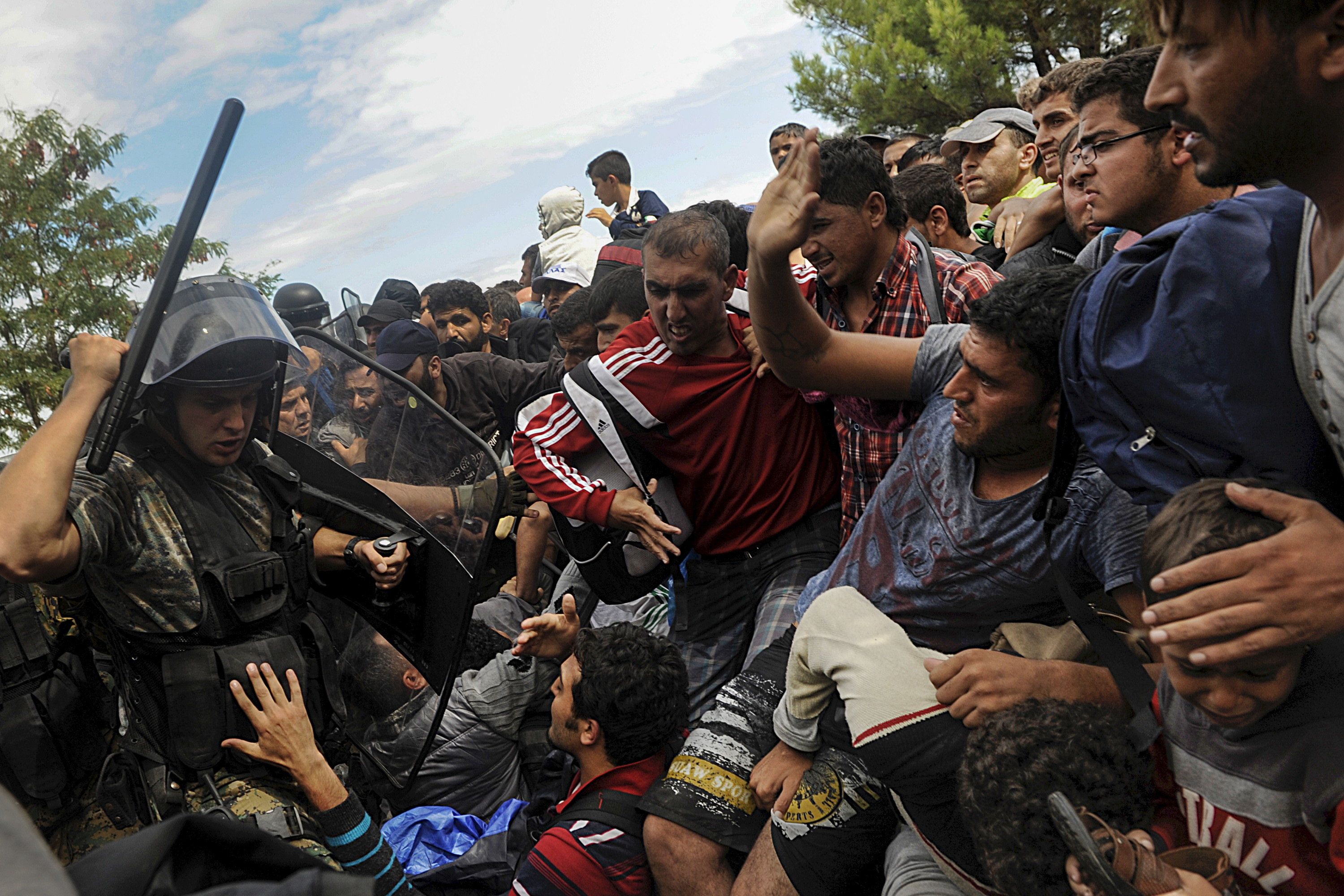In recent years, the accelerating cross-border flow of migrants fleeing violence and poverty has remade the politics of Europe and the United States. A startling new study from Stanford University warns that the conflicts we've seen to date may just be the opening act of a much larger and more dangerous drama.
Here's the study's argument in brief:
- In 2007-2008, a drought wiped out the livelihoods of huge numbers of Syrians living in the countryside, forcing them into already overcrowded cities. This forced internal migration created stresses that combined with existing problems to create social unrest, a harsh government crackdown, and then a civil war.
- The war created an exodus of millions of desperate Syrians toward neighboring countries and then to Europe, where more than one million of them landed in 2015.
- This wave of refugees, joined by migrants from other places, sparked intense fear and hostility among some in Europe, creating opportunities for politicians to win support with vows to stop the flow. That's a major reason why xenophobic populism has become Europe's fastest-growing political phenomenon.
- In 2014–2018, an unusually severe drought hit Guatemala, Honduras, and El Salvador. Years of erratic weather, failed harvests, and a chronic lack of jobs decimated entire villages in all three countries and created strong incentives for migrants to try to reach the United States.
- The arrival of these migrants at the US southern border further polarized the politics of a country already divided over immigration, racial tensions, and lost manufacturing jobs.
Now a look to the future.
The report warns that populations are set to explode in sub-Saharan Africa, the Middle East, South Asia, and Central America in coming years. The working-age population of sub-Saharan Africa alone is expected to increase by nearly a billion people between 2020 and 2060. Over time, we're likely to see "regional demographic explosions of young people."
In coming decades, overcrowding in these places will exacerbate desertification, water shortages, and urbanization. Mounting ecological stresses will provoke violent political conflict, forcing more people to hit the road in search of a better life.
In other words: The combination of extreme weather patterns and growing populations of young people in poorer countries will combine to create more migration, more political anger, and a greater risk of conflict within and among countries.
But… the study's authors say this bad news is not inevitable. Good government, in both poor and rich countries, can help avoid this risk. If poor countries invest more in education, they can create jobs and other opportunities that persuade many more people they can build a safe and prosperous future, for themselves and their families, where they are. It's in the interest of rich countries to help. And governments of rich and poor countries can work together much more effectively to slow the advance of climate change. If they do, say the study's authors, both sides will benefit.
